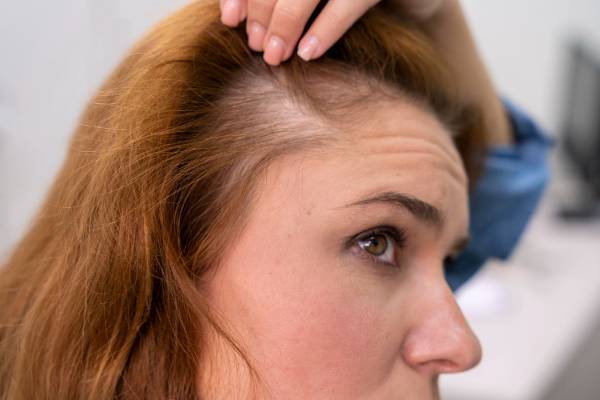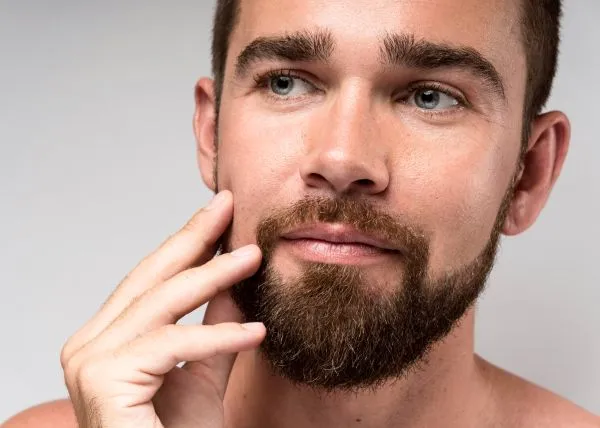Hair thinning is a common concern for both men and women, and it can significantly affect self-esteem and confidence. If you’ve started noticing thinning hair or a receding hairline, you’re not alone—this is a challenge many people face as they age. Fortunately, there are a variety of treatments available that can help restore hair or slow down its loss. In this post, we’ll explore the top queries people have when it comes to hair restoration, so you can make an informed decision about the right option for you.
1. What causes hair thinning?
Hair thinning can occur for several reasons. The most common cause is genetics, particularly androgenic alopecia (male or female pattern baldness). Other factors include hormonal changes (such as pregnancy or menopause), stress, nutritional deficiencies, and certain medical conditions like thyroid problems or autoimmune diseases. Understanding the underlying cause of your thinning hair can help you choose the best treatment options.
2. What are the best treatments for thinning hair?
When it comes to treatments, there are several options to consider, including topical solutions like Mino-xidil, oral medications like Fin@steride, PRP ther-apy, and even hair transplant surgery. The best treatment for you depends on the severity of your hair thinning, your budget, and how much time you’re willing to invest. Some treatments are non-invasive, while others involve surgical procedures.
3. Does Minoxidil really work for hair growth?
Mino-xidil (commonly sold as Rog@ine) is one of the most widely used treatments for hair thinning, and many people wonder if it actually works. Mino-xidil can be effective for certain individuals, particularly those with early to moderate hair thinning. It stimulates hair follicles to promote regrowth and can prevent further hair loss. Results vary, but most people see noticeable improvement after about 4–6 months of consistent use. However, the key to success is regular application and patience.
4. Can hair thinning be reversed?
Many people want to know if hair thinning can be reversed entirely. Unfortunately, once hair follicles have stopped producing hair or have shrunk significantly, it may be difficult to reverse thinning. However, there are ways to slow down or stop further hair loss, and in some cases, treatments like PRP ther-apy or hair transplants can stimulate new growth. Early intervention is key, so it’s important to consult with a professional if you notice signs of thinning.
5. Is hair transplant surgery worth it?
For those experiencing more advanced hair loss, a hair transplant can provide a permanent solution. In this procedure, hair follicles are moved from a dense area (usually the back of the head) to the thinning or bald spots. While the surgery is costly, it has high success rates and can result in natural-looking, fuller hair. The decision to undergo hair transplant surgery is personal, and it’s important to consider the procedure’s cost, recovery time, and the long-term results before making a commitment.
6. How does Platelet-Rich Plasma (PRP) ther-apy work for hair restoration?
PRP ther-apy is a non-invasive treatment where blood is drawn from your body, processed to concentrate platelets, and then injected into the scalp to stimulate hair growth. This process works by utilizing the body’s natural healing properties to revive dormant hair follicles. PRP is particularly effective for those with early-stage hair loss or thinning. Results vary, but many people notice improved hair thickness and density after several sessions.
7. Are there any natural remedies for thinning hair?
If you're looking for a more natural approach, several remedies may help promote healthy hair growth. These include essential oils (like rosemary or peppermint), scalp massages, and supplements like biotin or collagen. While these options are not as scientifically proven as medical treatments, they can still improve scalp health and may help with hair regrowth when combined with other therapies.
8. What foods help with hair growth?
A balanced diet can play a significant role in the health of your hair. Foods rich in iron, zinc, vitamin D, and omega-3 fatty acids are all important for healthy hair growth. Consider adding foods like salmon, spinach, nuts, eggs, and sweet potatoes to your diet. Additionally, ensure you're getting enough protein, as hair is made primarily of keratin, a type of protein.
9. How long does it take to see results from hair restoration treatments?
The timeline for results depends on the type of treatment you choose. Medications like Mino-xidil typically show results within 4–6 months. PRP ther-apy may require multiple sessions over the course of several months before noticeable improvements are seen. For hair transplants, the final results can take up to a year to fully develop, although some early regrowth is often visible within a few months.
10. What are the side effects of hair restoration treatments?
Each hair restoration treatment has its own set of potential side effects. For example, Mino-xidil may cause scalp irritation or unwanted facial hair in some individuals. PRP ther-apy is generally safe, but some people may experience minor discomfort, swelling, or bruising at the injection sites. Hair transplants come with risks of infection, scarring, or uneven hair growth, although complications are rare.
Conclusion
Hair thinning is a common concern, but with so many options available, there’s no need to feel powerless. Whether you opt for non-invasive treatments like Mino-xidil and PRP ther-apy, or more permanent solutions like hair transplants, there are plenty of ways to slow or even reverse hair thinning. The best solution depends on your unique situation, so it’s always a good idea to consult with a specialist who can help guide you toward the treatment that’s right for you.
If you’re considering a hair restoration treatment, contact our clinic today for a consultation. Our team of experts is here to help you explore the best options for restoring your hair and confidence.
For enquiries you can get in touch with us at info@drkeerthanakalva.com







